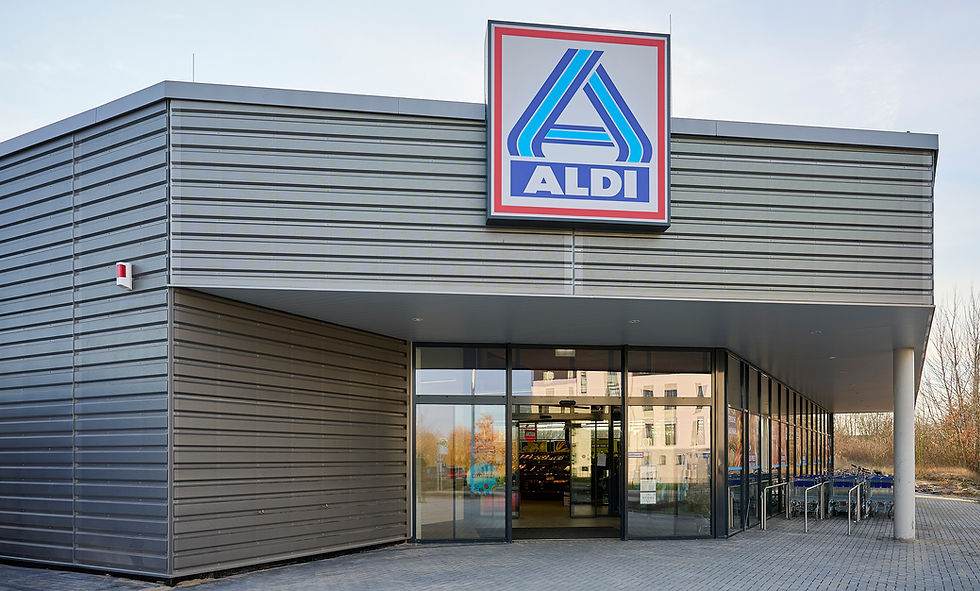Netherlands: Unprecedented inflation drives consumers to Discounters
- DRC Discount Retail Consulting GmbH

- Sep 1, 2022
- 3 min read
Dutch consumers more often move to cheaper budget supermarkets now that retail prices in the stores are rising fast. As a result, discounters Aldi and Lidl win market share in the Netherlands. That is what market researchers and retail experts say to the dutch FD.
Dutch inflation rose to an unprecedented 13.6% on an annual basis in August, according to the Central Bureau of Statistics. Recently the Central Planning Bureau predicted that consumers purchasing power will fall by 6.8% this year, the biggest decline since the Second World War. People also notice this at the checkout in the supermarket. Foods rose the most in price this summer since the 1970s.
That is why people seek the cheaper supermarket more often. "We see an inflation effect in the market shares of Dutch supermarkets for the past four to six weeks," says Sjanny van Beekveld of market researcher IRI. The market share of Lidl and Aldi has risen from 15.7% to 16.3% so far, according to figures from IRI.
Aldi and Lidl instead of Albert Heijn and Jumbo
For a while the increase in the discounters could be explained by recovery after the corona pandamie. According to Van Beekveld, the Dutchman visits on average two supermarkets per week. During the pandemic that changed: people did their groceries only at one store: the nearest. This year, consumers went to more stores again.
The discounters grew further in recent weeks, says the researcher. They now have more market share than for the pandemic. Retail expert Frank Quix also sees that. His consultancy firm Q&A Insights & Consultancy asked 850 consumers how their buying behavior changes due to inflation. The research shows that Albert Heijn and Jumbo are losing customers in favor of Aldi and Lidl.
Whereas last year 30% of the consumers surveyed did the most shopping at Albert Heijn, this year is 24%. Lidl replaces Jumbo as well-visited supermarket. 22% of consumers most often enter the German supermarket, compared to 18% last year.
Will increase even further
Van Beekveld expects the discounters to grow further in the coming period due to the rising prices. "We see that people re-evaluate their behavior after the summer vacation. They now look at where they will buy in the coming period. "In addition, many people will see their energy bills rise in the coming months.
Quix also thinks that the shift will continue. '73% of the consumers surveyed say that inflation affects them, compared to 61% in April. As inflation persists, more people start buying differently. "
Bargain chains have been gaining ground for some time in other European countries. The market share of Aldi and Lidl has been growing in the United Kingdom for months. Aldi recently even hit the British Morrisons off the throne. The German chain is now in the top four of the most visited supermarkets in the country. In France, Lidl was the best performing supermarket this summer, together with Carrefour.
Prices in the supermarket rise faster
Extreme inflation has changed how shopkeepers and suppliers do business. In many cases they only conclude short-term contracts. Suppliers pass on the higher costs of energy, transport and raw materials faster to supermarkets. As a result, cost increases end up with the consumer faster.
At the same time, supermarkets are doing their best to keep customers. Albert Heijn (owned by AHOLD-DELHAIZE) recently praised its own brand products in a full -page advertisement. "Half of our turnover comes from these products and we see its popularity rising enormously," says a spokesperson. Jumbo also says that customers more often choose the private label.
To maintain customers, Albert Heijn and Jumbo can give even more attention to their own brand, thinks Quix. "The prices of these products correspond reasonably with the prices at the discounters." His research shows that consumers have bought more private label products in recent months.
Struggle to make ends meet
Supermarket chain Dirk announced on Tuesday that it reduces the prices of more than 200 products, on a total of around 7,500 products. "We make well-selling basic messages cheaper, such as pasta, toilet paper and bread," says Marcel Huizing, director of Dirk. 'Many families struggle to make ends meet. They are looking for the cheapest possible groceries. So everything helps. "
See here for more: https://fd.nl/bedrijfsleven/1450302/ongende-inflatie-drijft-consument-discountsupermarkt-s4H2CAU0BFHU?utm_Medium=social&utm_sour=linkin&utm_campaign=earNed&ut2083 https://fd.nl/bedrijfsleven/1450302/ongekende-inflatie-drijft-consument-naar-discountsupermarkt-s4h2caU0BFhu?utm_medium=social&utm_source=linkedin&utm_campaign=earned&utm_content=20220831




Comments